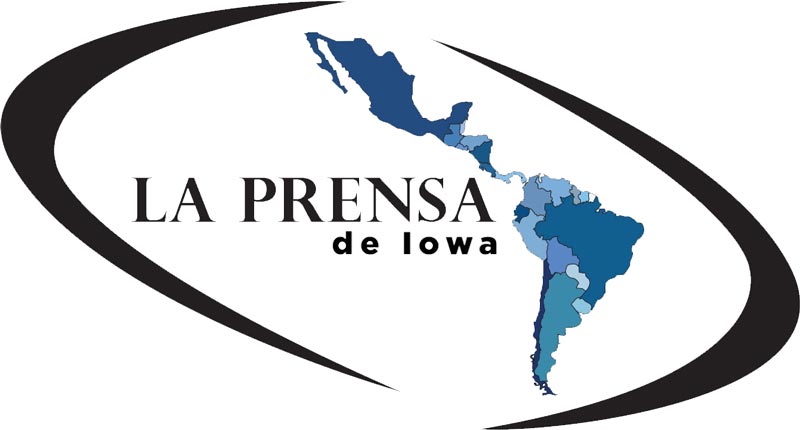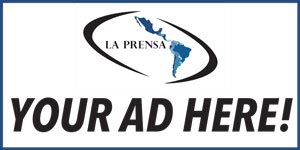Organizaciones lanzaran campaña de vacunación COVID-19
/(A la derecha) Darryl Morin, de Forward Latino y Joe Henry de LULAC ofrecieron una conferencia de prensa para informar sobre la nueva iniciativa de la nueva campaña de vacunación del COVID-19 para los emigrantes hispanohablante de Iowa.
Katie Akin
Iowa Capital Dispatch
El pasado viernes, 15 de octubre tres organizaciones latinas anunciaron una nueva campaña de vacunación en Iowa dirigida a los residentes latinos, hispanohablantes e inmigrantes del estado.
Darryl Morin, presidente de Forward Latino, una organización sin fines de lucro con sede en Wisconsin dijo “Sabemos que podemos alcanzar la meta y traer equidad a nuestra comunidad, así como mejorar en general la salud pública y la prosperidad del gran estado de Iowa.”
El Departamento de Salud Pública de Iowa otorgó $155,000 de fondos de American Rescue Plan (Plan de Rescate Estadounidense por su traducción al español) a la Liga de Latinoamericanos Unidos (LULAC, por sus siglas en inglés) de Iowa, Forward Latino y a LATIX Inmigrants of Iowa para el esfuerzo de vacunación. Morin dijo que la campaña consistirá en anuncios de televisión, radio y anuncios impresos en inglés y español. El grupo también enviará personas a los diferentes lugares de Iowa para concientizar al hispanohablante sobre la importancia de la vacuna.
“Vacunarse no se trata solo de cuidarse a uno mismo, se trata de cuidar a su familia. Y es por eso por lo que (la campaña) se llama 'Por Mi Familia',” dijo Morin.
La campaña abrirá clínicas de vacunas en ocho condados de Iowa con mayor población latina: Polk, Woodbury, Scott, Muscatine, Pottawattamie, Marshall, Tama y Buena Vista.
Aunque Iowa no informa las tasas de vacunación por datos demográficos, Morin estimó que solo alrededor del 35% de los latinos elegibles en el estado fueron vacunados. A nivel nacional, dijo, las comunidades latinas tienen tasas de vacunación más bajas debido a los horarios de trabajo exigentes y la insuficiente educación sobre las vacunas.
También señaló que la información errónea desplegada al inicio de la vacunación pudo haber disuadido a algunas personas de recibir la inyección, como: las afirmaciones infundadas de que las vacunas no eran seguras o como la información incorrecta sobre la necesidad de una o dos formas de identificación para obtener la vacuna.
Translation
Organizations will launch COVID-19 vaccination campaign
(Right) Darryl Morin of Forward Latino and Joe Henry of LULAC held a press conference to report on the new initiative of the new COVID-19 vaccination campaign for Spanish-speaking immigrants from Iowa.
Katie Akin
Iowa Capital Dispatch
Last Friday, October 15, three Latino organizations announced a new vaccination campaign in Iowa targeting Latino, Spanish-speaking, and immigrant residents of the state.
Darryl Morin, President of Forward Latino, a Wisconsin-based nonprofit, said “We know that we can reach the goal and bring equity to our community, as well as improve the overall public health and prosperity of the great state of Iowa. "
The Iowa Department of Public Health awarded $ 155,000 in American Rescue Plan funding to the League of United Latin Americans (LULAC) of Iowa, Forward Latino and LATIX Immigrants of Iowa for the vaccination effort. Morin said the campaign will consist of television, radio and print ads in English and Spanish. The group will also send people to different places in Iowa to educate Spanish speakers about the importance of the vaccine.
“Getting vaccinated isn't just about taking care of yourself, it's about taking care of your family. And that's why (the campaign) is called 'For My Family,' ”Morin said.
The campaign will open vaccine clinics in eight Iowa counties with the largest Latino populations: Polk, Woodbury, Scott, Muscatine, Pottawattamie, Marshall, Tama and Buena Vista.
Although Iowa does not report vaccination rates based on demographics, Morin estimated that only about 35% of eligible Latinos in the state were vaccinated. Nationwide, she said, Latino communities have lower vaccination rates due to demanding work schedules and insufficient education about vaccines.
He also noted that misinformation displayed at the start of vaccination may have deterred some people from receiving the injection, such as: unsubstantiated claims that vaccines were not safe or incorrect information about the need for one or two forms of identification. to get the vaccine.








































